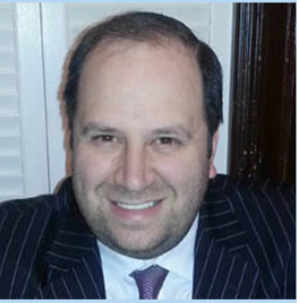
One could be forgiven for feeling jaded by incessant requests to fund organizations and individuals. After all, we are all inundated by tzedakah letters on a regular basis. The natural reaction would be to ignore the plea, however noble the cause. And yet we give, and do so abundantly, at high levels, both as individuals and as a community. How did we, the Jewish people, develop the devotion to charity, which is frankly remarkable in terms of scope and breadth of accomplishment?
To address this question, our rabbis explain that as a people we comprise three critical elements: rachmanim, baishanim, and gomlei chasadim: we are kind-hearted, easily embarrassed and benefactors to charitable causes that help others in need (See BT Yevamot 76a). It is therefore no surprise that there are always volunteers available who not only deliver Pesach packages on the eve of the holiday to those in need, but do so discreetly in an effort to not embarrass recipients. Tomchei Shabbos, Chasdei Lev, etc., a gemach (free loan) for nearly every imaginable need—from clothing donation to baby formula—there is simply no shortage of good causes that we seek to actively advance through our collective efforts.
When we turn to Parshat Terumah, we are obligated, at the onset, to donate gold, silver and bronze toward the construction of the Mishkan. But why are we obligated to donate anything at all? After all, the prophet Chagai says, “Mine is the silver, and Mine is the gold, says Hashem” (Chagai 2:8). Why, then, were we commanded to donate these three precious metals when Hashem has them all at His disposal?
Perhaps to teach us that, quantity aside, it is, as the Kedushat Levi explains, the act of giving of these precious commodities that must come from the heart. As the verse states, “asher yidvenu libo, whose heart is willing” (Exodus 25:2). This can be translated to other spheres of influence: Whenever we give of ourselves, it must be genuine and heartfelt.
Once the Mishkan was assembled, it carried with it certain spiritual elements which, according to the Ramban, encapsulated the sanctity of Matan Torah at Mount Sinai (Exodus 25:2). The Ibn Ezra, ever the rationalist, is of the opinion that the Mishkan simply removed the necessity for Moshe to climb to the top of Mount Sinai each time he was summoned by Hashem. A third interpretation, offered by the Midrash Tanchuma, is that the Mishkan represented a microcosm of the entire universe. Clearly, the constant reassembly of the Mishkan during the 40 years of wandering through the desert connected us to God and served as a stairway to heaven.
Chazal point out that there are three types of people who are motivated to give charity. The “gold standard” is one who gives when he/she is healthy, absent any personal or ulterior motives. This can be alluded to in the acronym that comprises the word zahav—zeh hanotein bari—one who gives when he is healthy. The next is the “silver standard,” or one who donates in order to mitigate certain risks, e.g., financial, legal or health concerns. This too can be alluded to in the word kesef—k’sheyeish sakana potei’ach, i.e., when there is danger, open your wallet. We are all familiar with the dictum tzedakah tatzil mimavet, charity saves one from death (Mishlei 10:2). The third type of donor is nechoshet, the “bronze standard,” emblematic of one who is too sick or frail to enjoy his/her accumulated wealth. Accordingly, nechoshet sadly alludes to nisinat choleh she’amar tenu, the donation from a sick person who says, “Give.” Unfortunately, this individual can no longer enjoy the bounty God has provided him in the realm of sustenance. As the famous songwriter once wrote, “There’s a lady who’s sure all that glitters is gold, and she’s buying a stairway to heaven.” Surely the Torah desires of us to aspire to give at the gold standard, and to do so with a full and complete heart.
By Mordechai Plotsker
Mordechai runs a popular 10-minute nightly shiur on the parsha with a keen interest on the invigorating teachings of the Berditchever Rav, the Kedushat Levi. Mordechai resides in Elizabeth, New Jersey, with his wife and children, and can be reached by email at marc.plotsker@gmail.com.










